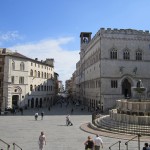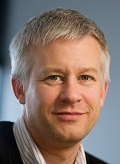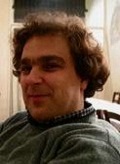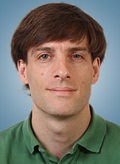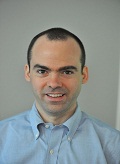Summer School
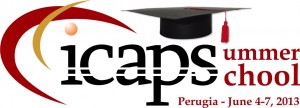
Chairs: Alfredo Milani and Valentina Poggioni
Dates: 4th-7th June 2013
Place: Perugia (Umbria- Italy)
Description
The International Summer School on Planning and Scheduling is a well-established event attracting students in AI from all over the world. This year is the 8th edition and it will be held in Perugia (Italy), the week immediately before the ICAPS 2013 Conference in Rome. The school is an intense four-day educational and mentoring program for graduate students and young researchers. The Summer School offers as usual high level introductory courses to basic research planning issues and moreover the two special sessions: “Hands-on Planning” and “P&S for Aerospace Applications”. The special aim of this year edition is to provide the participants a practical “hands-on” perspective in order to address a variety of domains where P&S systems represent a potential solution. The Aerospace area represents a remarkable example of a field where P&S has been successfully applied and which is a source of basic research issues. The case-studied and discussion oriented approach of these Special Sessions aims at increasing the participants ability to recognize and successfully face the practical issues which arise when modeling, designing and running P&S applications. Speakers will be high level experts widely acknowledged by the P&S community, which include the former organizers of ICAPS P&S Competitions for the “Hands-on Planning” track and leading scientists from NASA, Space Telescope Science Institute, ONERA and European Space Agency for the “P&S for Aerospace Applications” track.
___________________________
Program
The school is organized in three main tracks
- Track 1 (T1) : Introductory and General Topics
Topics:Introduction to Planning and Scheduling; Heuristic planning; Probabilistic planning.
Speaker: Simone Fratini, Hector Geffner, Joerg Hoffmann, Michael Katz, Nicola Policella - Track 2 (T2) : P&S for Aerospace Applications
Topics: P&S at varying cadences and granularity, geometry intensive planning, CP and OR/Mathematical Programming, temporal reasoning, multi objective P&S, timeline-based P&S, plan execution and on-board P/S issues, Real applications on Earth Observation and Deep Space missions
Speaker: Steve Chien, Simone Fratini, Mark Giuliano, Nicola Policella, David Smith, Gerard Verfaillie
- Track 3 (T3) : Hands-on planning
Topics: Domain modeling, planner evaluation and comparisons , experiments plans. This session also includes planning labs run by the organizers of the last deterministic track competion
Speaker: Angel García Olaya, Sergio Jiménez Celorrio, Carlos Linares Lopez
| Tue 4 June | Wed 5 June | Thu 6 June | Fri 7 June | |
| 9.00 | Registration | |||
| 9.30 – 11 | Welcome + Hoffman & Katz 1 | Verfaillie 1 | Geffner 1 | Smith 1 |
| 11 – 11.30 | Coffee Break | Coffee Break | Coffee Break | Coffee Break |
| 11.30 – 13 | Hoffman & Katz 2 | Verfaillie 2 | Geffner 2 | Smith 2 |
| Lunch | Lunch | Lunch | Lunch | |
| 14.30 – 16 | Fratini & Policella 1 | Hoffman & Katz 3 | Linares & Celorrio 2 | Linares & Celorrio 3 |
| 16 – 16.30 | Coffee Break | Coffee Break | Coffe Break | Coffe Break |
| 16.30 – 18 | Fratini & Policella 2 | Giuliano (16.30– 17.30) | Chien | Linares & Celorrio 4 |
| Linares & Celorrio 1 (17.30-19) | SOCIAL DINNER |
VISIT TO THE ANCIENT LIBRARY OF MONTERIPIDO |
| Track 1 : Introductory and General Topics | ||||
| Track 2 : P&S for Aerospace Applications | ||||
| Track 3 : Hands-on planning | ||||
___________________________
Lecturers
Sergio Jiménez Celorrio- Universidad Carlos III de Madrid – ES
Steve Chien – JPL NASA – USA
Simone Fratini – European Space Agency -DE
Hector Geffner – Universitat Pompeu Fabra -ES
Marc Giuliano – Space Telescope Science Institute – USA
Joerg Hoffmann – Saarland University – DE
Michael Katz – Saarland University – DE
Carlos Linares – Universidad Carlos III de Madrid – ES
Nicola Policella – European Space Agency – DE
David Smith – NASA Ames Research Center – USA
Gerard Verfaillie – ONERA – FR
___________________________
Venue
All the school activities will be held at
Dipartimento di Matematica e Informatica
Università degli Studi di Perugia
Via Vanvitelli 1, 06123 PERUGIA
___________________________
How to apply
Application to the summer school will require submission of
- the completed ICAPS_summer_school_applicationForm (.txt file)
- a CV
- an intention letter describing how the applicant’s planned research is connected to the topics of automated planning and scheduling.
Students asking for a grant must also provide a recommendation letter from their research advisors.
In order to ensure the success of the school, the registration will be restricted to 60 participants.
To apply, please send the above documents to
icaps_summerschool@dmi.unipg.it
by March 25th, 2013
Important deadlines
Application and Grant request admission : March 25th, 2013
Notification of Admission to the School : March 31th, 2013
Paymment of Registration fees : April 30th, 2013
Summer School starts : June 4th, 2013
___________________________
Registration Fee
The registration fee is 400 EUR. It covers:
- Admission to all school courses and laboratories
- Coffee breaks and lunches during the school
- Accommodation for 5 nights from June 3 (check-in) to June 8 (check-out) in a double room.
- Social dinner
It is possible to require optionally accommodation in single room at the extra cost of 150 EUR.
The payment must be made through the ICAPS registration web site after the notification of admission and by April 20th, 2013.
___________________________
Support
A limited number of scolarships and grants for students will be available.
Every student of the summer school can apply for a grant that can be used to partially cover registration fee, accommodation, and travel expenses. Request for such financial support should be indicated on the application form, and additional documentation must be provided.
Grants applicants should provide:
- a presentation letter of the student’s supervisor/director of research
- the application form with filled grant request part
___________________________
Lectures
___________________________
Steve Chien “Timeline-based Scheduling and Spatial coverage scheduling”
Abstract
Lecture 1 will cover timeline-based scheduling using a case study of the Earth Observing One mission. We will cover ground-based observation scheduling with thermal, visibility, maneuver, and data volume constraints. We will then cover onboard mission scheduling with CPU, RAM and continuous planning issues. Finally we will survey applications of these technologies to automated operations of multiple, networked, space, air, marine, ground assets.
Lecture 2 will cover incorporation of complex geometric constraints and coverage planning into the observation scheduling problem. We will begin with a case study of Mars Odyssey THEMIS science campaign scheduling. We will then cover incorporation of path planning into mission planning, including planning for ocean gliders, aerial vehicles, and surface rovers. Finally we will present ongoing work in geometry-aware scheduling to support the Rosetta mission, a free-flying spacecraft to the comet 67P/Churyumov-Gerasimenko.
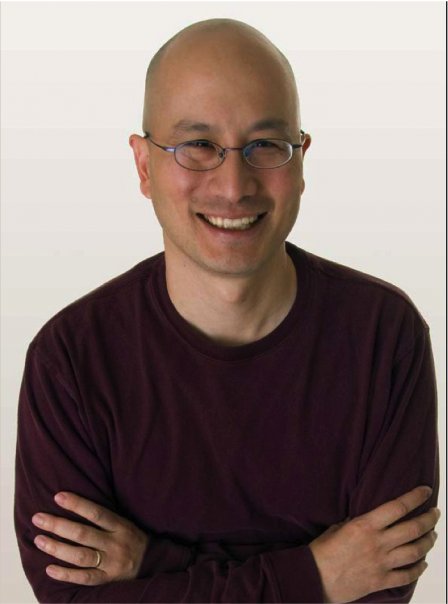
Short Bio
Dr. Steve Chien leads the Artificial Intelligence Laboratory at the Jet Propulsion Laboratory, California Institute of Technology (JPL). He is a Senior Research Scientist at JPL, and leads several efforts in automated scheduling and autonomous systems for space, aerial, and marine systems. He also holds appointments at the University of California, Los Angeles, and the University of Southern California. He holds a B.S. with Highest Honors in Computer Science, with minors in Mathematics and Economics, M.S., and Ph.D. degrees in Computer Science, all from the University of Illinois at Urbana-Champaign. Dr. Chien was a recipient of the 1995 Lew Allen Award for Excellence, JPL’s highest technical award for JPL personnel in the early years of their careers. He has been awarded three NASA medals (1997, 2000, 2006) for his work in research and development of planning and scheduling systems for NASA. He is a four-time honoree in the NASA Software of the Year Competition (1999, 1999, 2005, 2011) for his work in spacecraft autonomy and sensorwebs. In 2011 he was the inaugural recipient of the AIAA Intelligent Systems award, for his work in spacecraft autonomy.
Simone Fratini, Nicola Policella “From Scheduling to Planning with Timelines: An history of successful applications in Space”
Slides Part 1 (N.Policella)
Slides Part 2 (S.Fratini)
Abstract
In the frame of the Special Track on Space Applications of the summer school, this talk aims at providing an introduction of the basic AI Planning and Scheduling concepts and techniques which contributed to develop successful applications in the space domain. The talk starts discussing different topics in the area of project scheduling (everything started from there). Will continue addressing planning and scheduling integration with timelines (since most real-world scheduling problems are not “pure” scheduling problems, the planning with timelines paradigm was introduced). Both areas, project scheduling and planning with timelines, share a common knowledge representation core based on timelines, i.e., a mathematical construct that contains temporally related items. Finally the topic of timeline-based modelling and planning in space will be addressed by providing an overview of significant planning and scheduling experiences in the context of space domain.
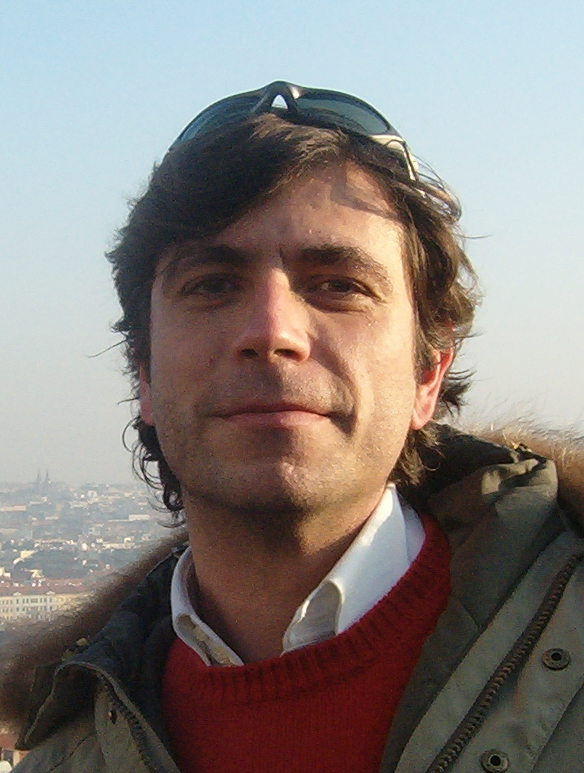
Simone’s Short Bio
Simone is an ESA Research Fellow in the Advanced Mission Concepts and Technologies Team at ESOC. Simone received a M.Sc. (2002) and a PhD (2006) in Computer Science Engineering at the University of Rome “La Sapienza”.
Simone’s research activities apply to modelling and solving planning and scheduling problems for controlling complex physical systems with timelines in various domains: spatial, robotics, industrial.
Simone has been involved in the design and deployment of various planning and scheduling systems for robotics and space applications. Among the others: GOAC (Goal Oriented Autonomous Controller), APSI: (ESA Advanced Planning and Scheduling Initiative); MEXAR (A Software Tool for Continuous Support to Data Dumping Activities for Mars Express).
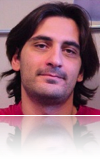
Nicola’s Short Bio
Since 2006, Nicola is member of the Advanced Mission Concepts and Technologies Team of ESOC/ESA as Senior Research Engineer. He is ESOC’s main technical responsible for the investigation of AI Techniques, particularly for Planning and Scheduling, in Spacecraft Operations Applications. He has been involved in several projects, such as MEXAR, RAXEM, APSI, SKeyP, IRONCAP, and TECO. He has a deep knowledge of spacecraft operations, including all actors, processes, interfaces and technical elements.
Nicola received a master degree (“Laurea”) and a Ph.D. (“Dottorato di Ricerca”) in Computer Science Engineering at the University of Rome “La Sapienza” in 2001 and 2005 respectively. His research deals with planning and scheduling with uncertainty and proactive synthesis of robust plans.
Hector Geffner “Advanced Introduction to Planning Models and Methods”
Abstract
Planning is the model-based approach to autonomous behavior where the agent behavior is derived automatically from a model of the actions, sensors, and goals. The main challenges in planning are computational as all models, whether featuring uncertainty and feedback or not, are
intractable in the worst case when they are represented in compact form. In this short course, we will look at a variety of models used in AI planning,
with emphasis on those that accommodate incomplete information and uncertainty, and at the techniques that have been developed for solving them. The target audience are students and researchers interested in autonomous behavior and planning from an AI, Engineering, or Cognitive Science perspective.
 Short Bio
Short Bio
Hector is interested in AI and Cog Science, working on both planning and plan recognition in intelligent systems where he develops methods for generating and recognizing autonomous behavior automatically using model-based methods. He obtained a BSc on EE at the Universidad Simon Bolivar in Caracas, and a MSc in Systems Science and a PhD in Computer Science at UCLA. After his PhD, he worked at the IBM T.J. Watson Research Center in NY, USA from 1989 until 1992, and at the Universidad Simon Bolivar, in Caracas, from 1992 until 2001. Since then he has been an ICREA Research Professor at the Universitat Pompeu Fabra, Barcelona. Hector is a fellow of AAAI and ECCAI, Associate Editor of AIJ and JAIR, editor of the book ‘Heuristics, Probability and Causality: A Tribute to Judea Pearl’, College Publications, 2010, with Rina Dechter and Joseph Halpern, and author with Blai Bonet of `Advanced Introduction to Planning: Models and Methods’, forthcoming from Morgan and Claypool in 2013.
Mark Giuliano “Multi-Objective Planning and Scheduling with Astronomical Applications” “Planning and Scheduling for Operational Astronomical Missions”
Slides multi-objective-planning-and-scheduling (M.Giuliano)
Slides planning-and-scheduling-for-space (M.Giuliano)
Giuliano’s Short Bio
Dr. Mark Giuliano obtained a BA in Cognitive Science from the University of Rochester where he worked with James Allen on planning systems. Mark Obtained his PhD in computer science at the University of Maryland College Park in 1990 working with Jack Minker on parallel heuristic search using logic programs. Since graduation Mark has worked at the Space Telescope Science Institute in Baltimore, Maryland as the lead for a team that develops artificial intelligence based planning and scheduling software systems for operational use on the Hubble Space Telescope and other space based astronomy missions.
Joerg Hoffmann, Michael Katz “It’s a Long Way to the Goal, But How Long Exactly?”
Slides Part 1 (J.Hoffmann)
Slides Part 2 (J.Hoffmann)
Slides Part 3 (M.Katz)
Abstract
Heuristic search planning has been a key topic in planning research during the last decade, rising from the seminal work of McDermott, Bonet, and Geffner to what is now an immensely popular mainstream approach. Much of that popularity is, presumably, due to the not less immense successes in the IPC. Although it should be noted that the number of competitors using approach X does have an impact on the likelihood that X wins (the extreme case being all participants using X, from which we were not that distant in 2011). Plus there are certain doubts about whether the outcome of the IPC really is as important as it’s made out to be, which brings me to my 2011 summer school talk… but I’m digressing. Where was I? Ah yes, heuristic search planning.
Heuristic search planning is not entirely about how to obtain the heuristic function (denoted “h”), but that question has been at the core of much of the influential research in the last decade. How to estimate goal distance based on PDDL input? Since PDDL is a general problem description language, and distance estimates are based on problem abstractions, that question becomes “How to automatically abstract problems?”. With that in mind, what is just an “h” to some people, becomes a land of unlimited possibilities to those of us living inside h. The lecture aims at sharing some of the insights discovered in that land, in the last years. The land has been charted into 4 territories: ignoring deletes, abstraction mappings, landmarks, critical paths. We cover recent results regarding 3 of these. Specifically, we will discuss: analytically predicting properties of the search landscape under h^+, marrying h^+ with h^m, generalizing h^+ by relaxing only some of the state variables, admissibly combining different h by cost partitioning, accurately lower-bounding h+ using landmarks generated by LM-cut, and re-constructing h^+ through hitting sets on such landmarks. These are, in our humble opinion, some of the most exciting recent results, and some of them are so recent as to not being published yet at the time the summer school will be running.
Disclaimer: If you didn’t understand anything of the “specific” topic list I just gave, then you have just discovered a main weakness of the lecture. If you don’t know the different h^foo symbols in the list, chances are you’ll find it very hard to follow the talks. We apologize for this inconvenience, but it is unfortunately a necessity for us to be able to cover recent results. The lecture will begin with a brief overview, but our main aim in the technical sections is to bring across, in detail, one central result from each subject we address. If you wish to prepare for the lecture in advance, I would recommend to have a look through the slides of my recent planning course, which provides ample background: http://fai.cs.uni-saarland.de/
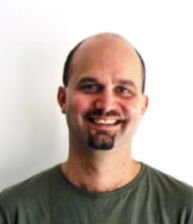 Joerg’s Short Bio
Joerg’s Short Bio
In 1997, Jana Koehler was offering a student programmer job at the University of Freiburg. Getting this job made my career — the topic was AI Planning, and that’s what I’ve been working on ever since. After getting my Ph.D. in 2002, I went through assorted research positions at Freiburg, MPI Saarbruecken, Cornell University, Innsbruck University, SAP Research, and INRIA Nancy, writing about 100 papers and winning various awards along the way (as well as losing my hair). I finally became a Professor at Saarland University in April 2012, since which time I’ve been busy making tons of lecture slides. Looking forward to show you some of them!
 Michael’s Short Bio
Michael’s Short Bio
I received my BA degree in math and computer science from Technion – Israel Institute of Technology, Israel, in 2002, and completed my PhD at the same institute in August 2010, with a thesis that won the ICAPS Best Dissertation Award 2011. I stayed on as a Postdoc until August 2011. From September 2011 until April 2012, I was a Postdoc at INRIA, Nancy, France, hosted by Prof. Jörg Hoffmann, until he accepted a position at Saarland University, Germany, where I currently continue my Postdoc as a member of the Foundations of Artificial Intelligence Group.
Carlos Linares, Sergio Jiménez Celorrio
“Hands-On Planning” Special Session
Slides (C.Linares, S.J.Celorrio)
Abstract
Research in automated planning is getting more and more focused on empirical evaluation. Likewise the need for methodologies and benchmarks to build solid evaluations of planners is increasing. In these lectures we will discuss different factors that affect to the empirical evaluation of planners and review the evaluation of the IPC-2011. We will pay a special attention to the software developed for running and analyzing experiments at the IPC-2011 and present some exercises to put in practice the lessons learned about planning
evaluation.
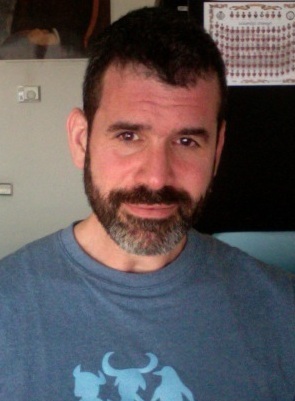 Carlos’s Short Bio
Carlos’s Short Bio
I received my BA degree in Computer Science in 1995 and a MS degree in Knowledge Engineering two years later. I immediately moved to industry mainly working on AI related projects (mainly vision and optimization) and then I moved to Rome, Italy to join the European Space Agency (ESRIN). I worked in the aerospace segment for almost 4 years. During this time I managed to finish my PhD on heuristic search so I joined the University later on. I am currently Associate Professor at the Planning and Learning Group (PLG) of Universidad Carlos III de Madrid, Spain. My research interests are domain-dependent problem solving with heuristic search techniques and domain-independent automated planning. I was co-organizer of the deterministic track of the IPC 2011.
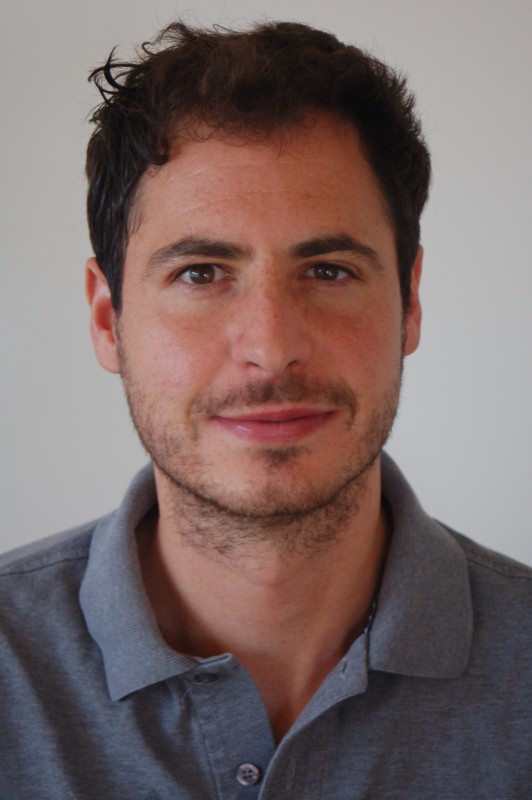
Sergio’s Short Bio
Dr. Sergio Jiménez Celorrio obtained his Ph.D in computer science at the Universidad Carlos III de Madrid (SPAIN) with a dissertation that received the Distinguished Thesis Award. Since 2004 Sergio has worked as an assistant lecturer at the computer science department of this university. His main research interests are automated planning, problem solving under uncertainty and machine learning for problem solving. Sergio was one of the co-organizers of the seventh International Planning Competition.
David Smith “From Task to MotionPlanning”
“The Challenges of Interactive Science Planning
Lecture 1
The Rovers domain used in the International Planning Competitions is composed of very high level actions like Navigate, Sample, TakeImage, and Communicate. Unfortunately, there is a big gap between these high level actions and the lower level commanding needed to actually operate a rover. In this lecture, we will explore the continuum between high level task planning and low level motion planning by considering a particularly challenging but fascinating rover: the ATHLETE robot developed at JPL. We will explore one possible multi-level architecture for operating this beast. We will then consider some of the challenges not addressed by this architecture, and consider what happens when the planning problem becomes more challenging and more realistic.
Lecture 2
The Mapgen planning system, used to plan daily activities for the two Mars Exploration Rovers, is often heralded as a successful application of AI planning technology to space missions. The reality is more complicated. While the software as a whole is generally acknowledged as having improved science return, the actual planning capability was rarely used. In this lecture, we will consider the nature of the science planning problem, and explore some of the technical capabilities that are needed in order to build a truly useful interactive science planning tool for planetary rovers.

Short Bio
David is a senior researcher in the Intelligent Systems Division at NASA Ames Research Center. He received his Ph.D. in Computer Science from Stanford University in 1985. He served as a Research Associate at Stanford, as a Scientist at the Rockwell Palo Alto Science Center, and as a Visiting Scholar at the University of Washington before joining NASA in 1997. His research interests include temporal planning, planning under uncertainty, oversubscription planning, and the interplay between motion planning and task planning. He has recently been focusing on applications of planning and scheduling to aviation safety and air traffic management. He was recognized as a AAAI Fellow in 2005.
Gerard Verfaillie
“Models and algorithms for planning activities of Earth
surveillance and observation satellites”
Abstract
The tutorial will try to show how real-world complex planning problems,
coming from space applications, can be effectively managed. It will
address the following topics:
- Space and ground systems, physical constraints, and user objectives;
- Timeline and event-based models;
- Decisions, constraints, and criterion;
- Anytime approximate solving algorithms;
- Current challenges: multi-criteria decision-making, on-board and
distributed decision-making, dealing with uncertainty …

Short Bio
Graduated from École Polytechnique (Paris) in 1971 and from SUPAÉRO
(French National Engineering School in Aeronautics and Space, Computer
Science Specialization, Toulouse) in 1985, Gérard Verfaillie is now
Research Supervisor at ONERA (The French Aerospace Lab). His
research activity is related to models, methods, and tools for
combinatorial optimization and constrained optimization, especially
for planning and decision-making. Automated planning of activities for
Earth surveillance and observation satellites, either on the ground or
on board, has been one of its main application domains.





